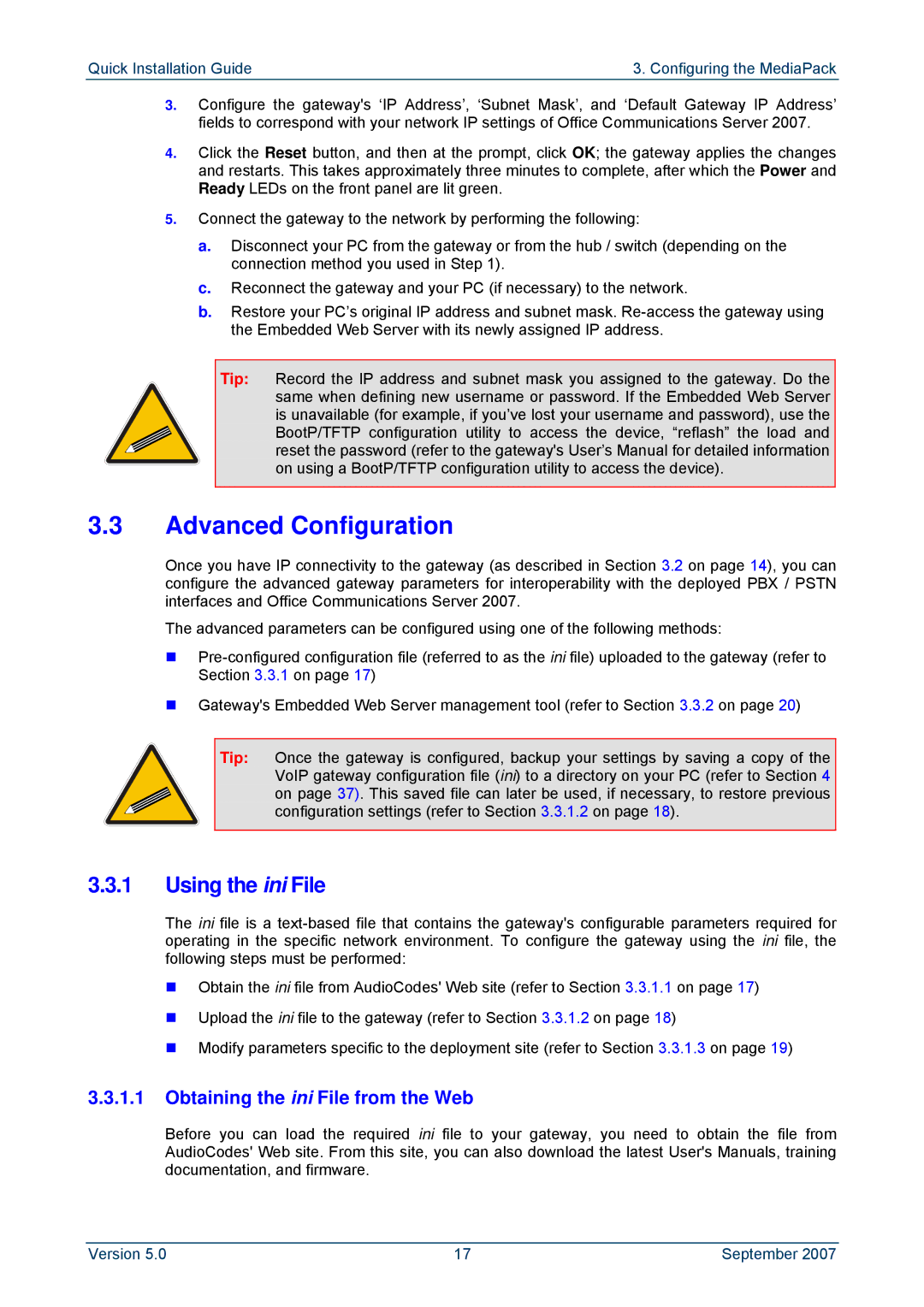
Quick Installation Guide | 3. Configuring the MediaPack |
3.Configure the gateway's ‘IP Address’, ‘Subnet Mask’, and ‘Default Gateway IP Address’ fields to correspond with your network IP settings of Office Communications Server 2007.
4.Click the Reset button, and then at the prompt, click OK; the gateway applies the changes and restarts. This takes approximately three minutes to complete, after which the Power and Ready LEDs on the front panel are lit green.
5.Connect the gateway to the network by performing the following:
a.Disconnect your PC from the gateway or from the hub / switch (depending on the connection method you used in Step 1).
c.Reconnect the gateway and your PC (if necessary) to the network.
b.Restore your PC’s original IP address and subnet mask.
Tip: Record the IP address and subnet mask you assigned to the gateway. Do the same when defining new username or password. If the Embedded Web Server is unavailable (for example, if you’ve lost your username and password), use the BootP/TFTP configuration utility to access the device, “reflash” the load and reset the password (refer to the gateway's User’s Manual for detailed information on using a BootP/TFTP configuration utility to access the device).
3.3Advanced Configuration
Once you have IP connectivity to the gateway (as described in Section 3.2 on page 14), you can configure the advanced gateway parameters for interoperability with the deployed PBX / PSTN interfaces and Office Communications Server 2007.
The advanced parameters can be configured using one of the following methods:
Gateway's Embedded Web Server management tool (refer to Section 3.3.2 on page 20)
Tip: Once the gateway is configured, backup your settings by saving a copy of the VoIP gateway configuration file (ini) to a directory on your PC (refer to Section 4 on page 37). This saved file can later be used, if necessary, to restore previous configuration settings (refer to Section 3.3.1.2 on page 18).
3.3.1Using the ini File
The ini file is a
Obtain the ini file from AudioCodes' Web site (refer to Section 3.3.1.1 on page 17)
Upload the ini file to the gateway (refer to Section 3.3.1.2 on page 18)
Modify parameters specific to the deployment site (refer to Section 3.3.1.3 on page 19)
3.3.1.1Obtaining the ini File from the Web
Before you can load the required ini file to your gateway, you need to obtain the file from AudioCodes' Web site. From this site, you can also download the latest User's Manuals, training documentation, and firmware.
Version 5.0 | 17 | September 2007 |
